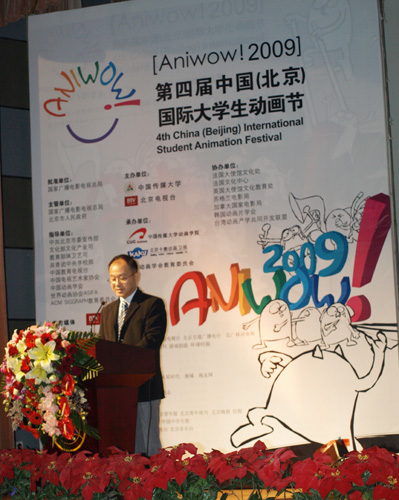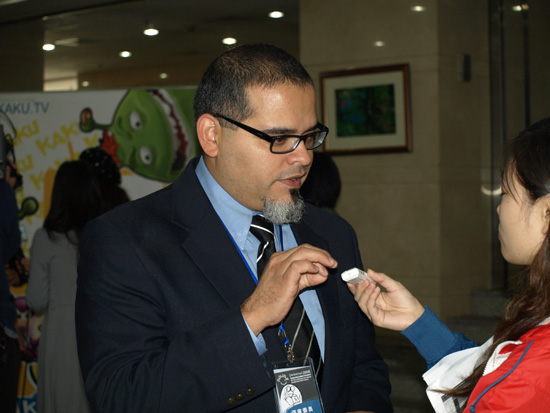What can DreamWorks share with Chinese animation?
Despite plummeting business confidence in sectors like the IT industry amid the economic downturn, the gaming and animation industries have stayed relatively upbeat. Up-and-coming animation talents, established animators, academic authorities and animation companies gathered together in Beijing on Wednesday for Aniwow!, a themed Animation festival.
The 4th China (Beijing) International Student Animation Festival (also known as Aniwow! 2009) with the theme: "Be Together", began on Wednesday at the Communication University of China (CUC).
71 entries of the 1,623 submissions from all over the world entered the final selection and will compete for the White Poplar award at the grand closing ceremony which takes place on Saturday, October 31.
Sophisticated works by the students, highlighting originality, diversity and independence, amazed the 12-member judge panel of both domestic and oversees experts, which was seen as a very positive sign for the industry's bright future.
On the Chinese mainland, 80 percent of imported animations distributed every year are from the US. Obviously that powerhouse of animation stands top of the industry with animation elites from world leading studios like Disney and DreamWorks. Its blockbusters thrill the world from Lion King to the Shrek series, the Prince of Egypt and Kung Fu Panda, to name just a few. Some of the visiting specialists from DreamWorks to the film festival shared the working magic behind those wonders.
David Pimentel, a head of story at DreamWorks Animation storyboarding on such films as Shark Tale, Shrek 2 and Kung Fu Panda, is on the judge panel. He talked about some animation ideas and the DreamWorks training regime.
Cross-cultural stories are most successful
The success lies in a good story, regardless of a big budget. According to David, it usually takes three or more years to produce a good movie starting from the first planning and storyboarding until the final project is completed.
China delivers a considerable amount of animated films every year, but few receive international recognition. Statistics available on SARFT show China has kept a stable growth rate in its output and in 2008 yielded 249 animations, up 28 percent on 2007.
"The creative innovation of China is at its beginning stages and it has the ability to explode and be one of the largest most influential animation communities in the world," David added, suggesting he expects the animation industry in China will continue to grow.
Reviewing the entries left him with a wonderful impression of Chinese animation. He hailed the budding Chinese animators. He used a cultural metaphor comparing films specific to Chinese culture to a budding flower, saying that, through that budding flower, Chinese culture will expand to the world. But what kind of story is relatable to the whole world? What type of story can everyday people relate to, and how can we overcome the language barrier?
David revealed this year's White Poplar winner does just that.
"You don't have to speak Chinese, American or German, it doesn't matter. It goes for every culture and you understand it. That's the kind of stories we want, that's crossing culture that relates to everybody in the world. Those are the most successful stories."
 0
0 









Comments